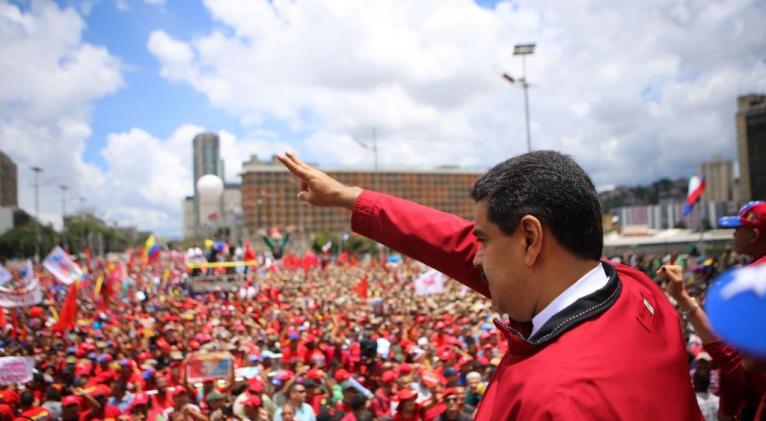Venezuela and beyond: did the turning point come?

When, on May 1 of this year, Venezuelan President Nicolás Maduro called a National Constituent Assembly as a way out of a scenario of political violence, which some analysts described as a civil war, few believed that seven months later “Chavismo” would be celebrating three electoral victories at the thread.
The truth is that since then the “Bolivarians” reached the government of 19 of the 23 states, including the emblematic Lara and Miranda, where “Chavismo” had not ruled for a while, and took control of 92% of the municipalities, in addition to eliminating the oppositional violence and retake, through the Constituent, the political initiative that had been lost after the defeat in the parliamentary elections of December 2015.
That, in the middle of a situation that has led him to lose three important allies in the continent (Argentina, Brazil and Ecuador) and the arrival of Donald Trump to the White House, who has radicalized the political and economic aggression already unleashed by his predecessor Barack Obama, who declared Venezuela an "unusual and extraordinary threat" to US national security.
Although the economic situation is still very unfavorable for the Bolivarian Government, the price of oil has recovered moderately, largely due to the actions promoted by Maduro in OPEC and the Clap that have been successful in facing the shortage caused; the financial persecution and induced inflation from abroad have not stopped.
On the other hand, the recent actions of reorganization and attack against corruption within the strategic mega-company PDVSA, as well as the replacement of ex-attorney general Luisa Ortega, can place the revolutionary leadership of Maduro in a position to assume the presidential elections of 2018 with a speech that removes to the opposition any flag of supposed anti-corruption fight.
But all this transcends Venezuela a lot.
While it is true that since the coup d'état against the government of Manuel Zelaya in Honduras there has been a chain of defeats for anti-imperialist leftist leaderships, it is also true that only in Argentina did that defeat occur through elections, while the more radicalized processes, like Bolivia and Venezuela, have managed to remain despite the media attack and economic war against them, because - although with many limitations - they have endeavored to profoundly modify the social and economic structures of capitalist domination.
The “judicialization” (processes devoted to accuse they of corruption in order to excluded of a possibility of be candidates to the presidency of their respective countries) of the political exercise against leaders such as Lula or Cristina, or the bullets against demonstrators that we have seen raining recently in Buenos Aires and Tegucigalpa, as well as the repression against social activists, and the role in all the strategies of the private media, they teach the price to pay for leaving intact, in the hands of the oligarchy, the economic power and the media, believing that once returned to the only element of power they had lost (the government) they would respect the rules of the democratic game.
Only in Venezuela, since the Bolivarian Revolution began, the private sector has received around 340 billion dollars, at a preferential rate, to import the final goods or inputs for production, which allowed it to strengthen, flog foreign currency and sabotage the national economy.
What happened in Ecuador, where the victorious leadership in a tight election has departed from the legacy of the Citizens' Revolution to begin dismantling it, without those who brought it to power-the bases and parliamentarians of the “Alianza País movement” can do anything other than denounce it, puts into discussion the limitations and personalism of the presidential systems where there is no accountability to the voters and there is no possibility of revocation.
With a consolidation of popular governments in Venezuela and Bolivia, the year 2018 is not promising for neoliberalism in Latin America.
The possibility of a return to the government of Lula, with distance the most popular politician in Brazil, the possibilities of victory that the surveys give to Andrés Manuel López Obrador in Mexico, a country with a very deep social, political and economic crisis, and the effect of a Donald Trump that is a machine to manufacture antipathies towards the policies of Washington, could mean the beginning of the end of what Rafael Correa has called the conservative restoration, and then it would be necessary to see if the lefts have been able to learn from their defeats.













Add new comment